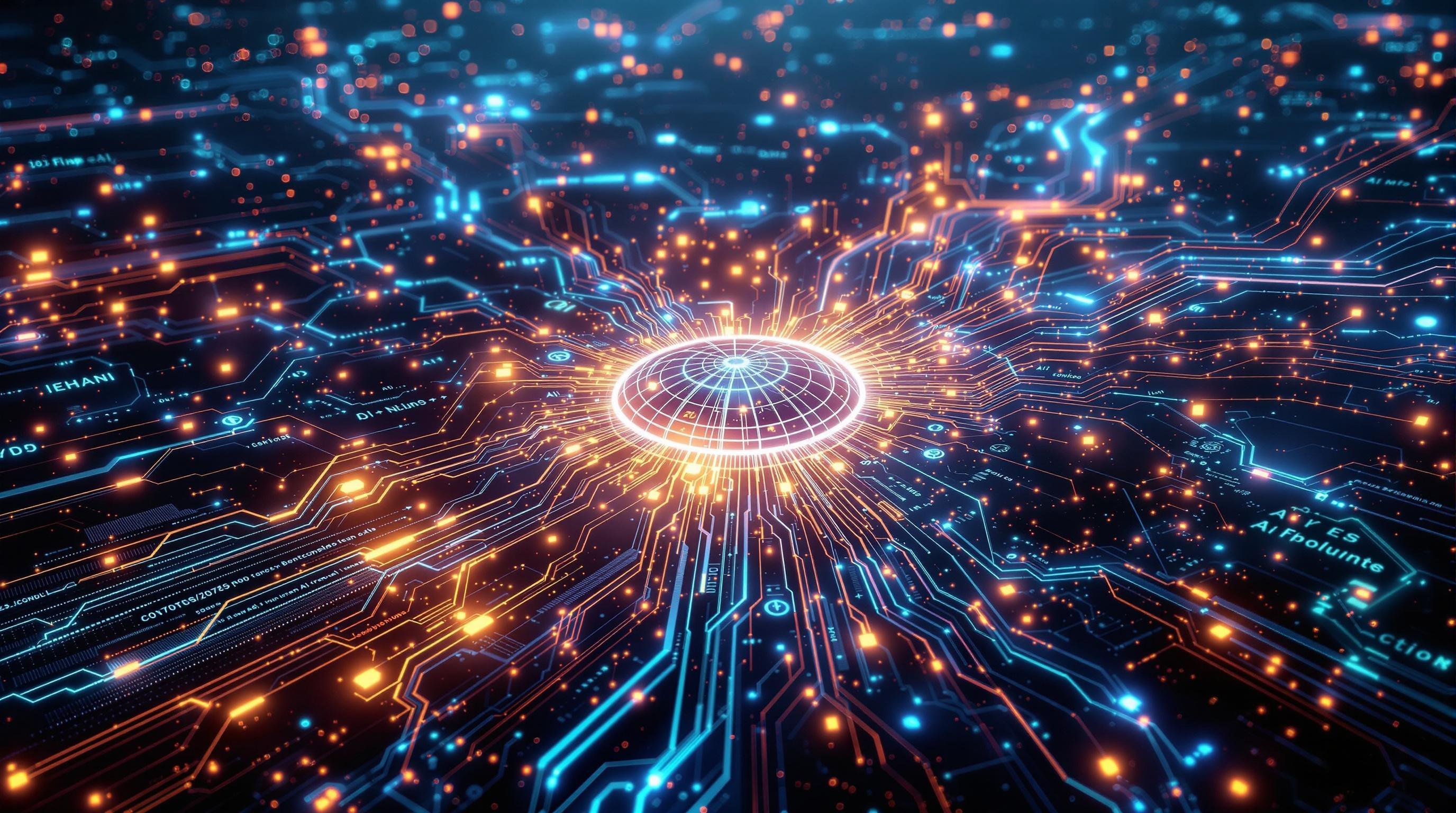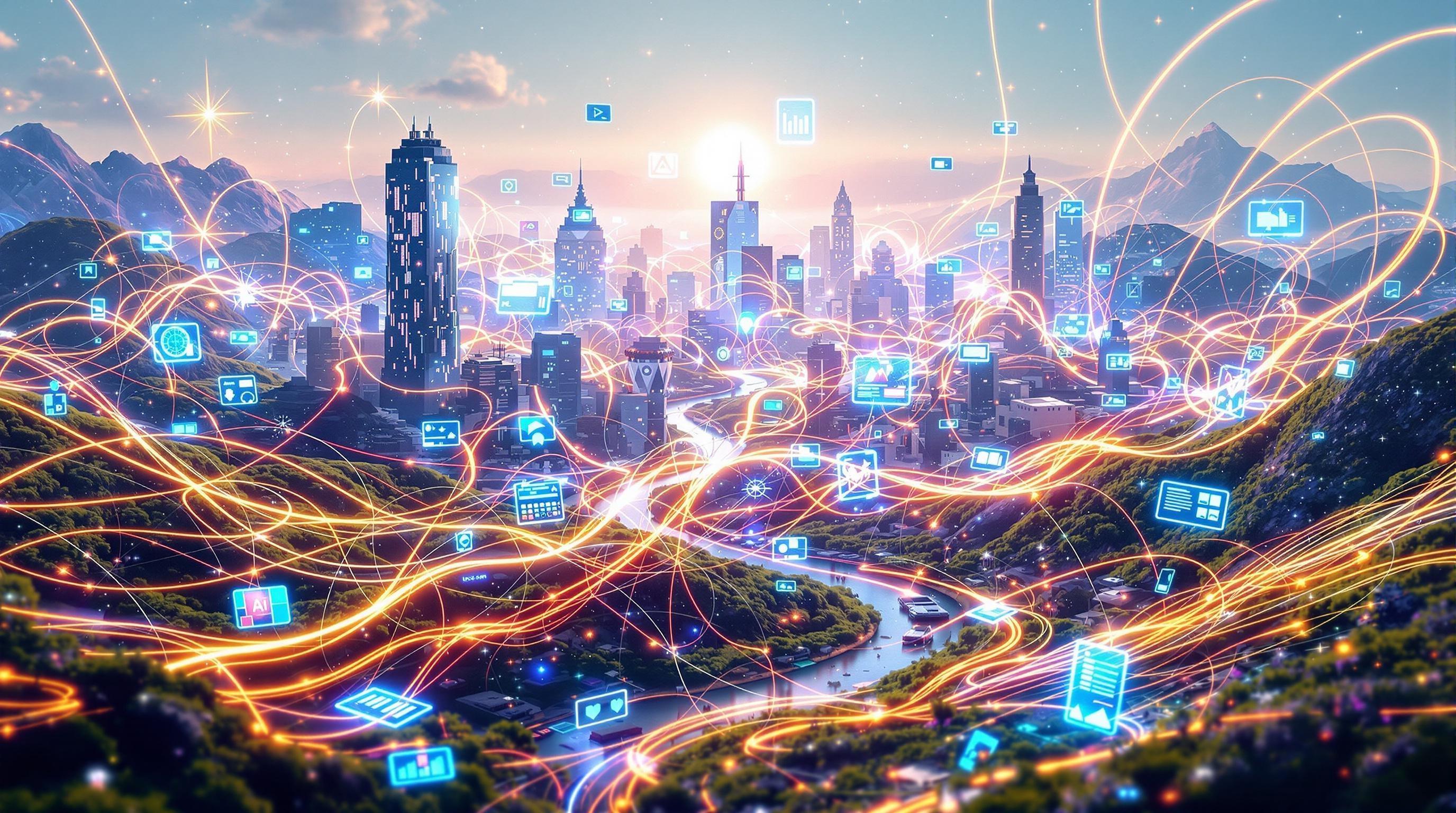Executive Summary
Today's artificial intelligence landscape is marked by intense geopolitical competition, significant shifts in the global job market, and rapid technological advancements. The race for Artificial General Intelligence (AGI) between the United States and China is accelerating, driven by national security and economic dominance. Concurrently, AI is reshaping employment, causing layoffs in the tech sector while creating new, higher-paying opportunities in other industries. Major players like Alibaba are unveiling groundbreaking innovations, showcasing the practical integration of AI into daily life and industrial applications. This digest provides a comprehensive overview of these critical developments, offering insights into the evolving impact of AI on society, economy, and international relations.
US-China Race for Artificial General Intelligence (AGI)
Source: ABC News (Australia)
The article highlights the escalating competition between the US and China in the pursuit of Artificial General Intelligence (AGI). This race is driven less by profit and more by geopolitical considerations, national security, and defense. The transition from current AI to AGI, where machines are expected to surpass human intelligence, is anticipated to be significantly accelerated by this competition.
The article draws parallels to the nuclear arms race, emphasizing the potential for AGI to transform warfare. While it's unclear which nation will achieve AGI first, the gap between the leader and follower is expected to be minimal.
Recent developments include China's Unitree Robotics selling humanoid robots with AI capabilities for a low price, indicating a potential flood of affordable AI machines. On the US side, President Donald Trump launched an "AI Action Day," emphasizing global dominance in AI, stating that "Whoever has the largest AI ecosystem will set global AI standards and reap broad economic and military benefits."
Trump's plan focuses on deregulation and removing what he terms "woke Marxist lunacy" from AI models, contrasting with previous administrations' focus on regulation. The US government's plan does not involve direct funding, relying on Silicon Valley and Wall Street investments, which are estimated to be between 800billionand800 billion and 800billionand1 trillion. China, in contrast, has invested an estimated $150 billion, leveraging open-source software, including some from OpenAI.
Chinese companies like DeepSeek and Moonshot AI have released advanced open-source AI models (R1 and Kimi K2, respectively) that are comparable to or even surpass American counterparts, capable of autonomously performing complex tasks, marking significant steps towards AGI.
Experts predict AGI could be achieved between 2030 and 2040, with potential for both profound benefits (healthcare, scientific research, productivity) and significant risks (job displacement, cyber-attacks, autonomous weapons, and even existential threats).
AI's Dual Impact: Tech Layoffs and Salary Boosts in Other Sectors
Source: Fortune
A study by labor market intelligence firm Lightcast reveals a paradoxical effect of AI on the job market: while it's driving mass layoffs in the tech industry, it's simultaneously boosting salaries in non-tech roles that require AI skills.
In the tech sector, AI-powered automation is leading to significant job displacement, particularly in software engineering, IT support, and administrative functions. Microsoft, for instance, is reportedly cutting 15,000 jobs while investing $80 billion in new AI initiatives.
Conversely, job postings for non-tech roles requiring AI skills are offering 28% higher salaries, an average of nearly $18,000 more per year. This shift is attributed to the widespread adoption of generative AI tools like ChatGPT, Microsoft Copilot, and DALL-E, which have led to an 800% surge in job postings mentioning generative AI skills outside of IT and computer science since 2022. Sectors such as marketing, design, education, and HR are rapidly integrating AI into their workflows.
The highest pay bumps for AI-skilled workers are observed in customer/client support, sales, and manufacturing. The study emphasizes the growing demand for a hybrid skillset that combines technical AI fluency with uniquely human abilities such as communication, leadership, problem-solving, research, and customer service. This suggests that while AI automates routine tasks, human judgment and creativity become even more valuable.
Companies are increasingly investing in embedding AI fluency enterprise-wide, upskilling various departments to build a future-ready workforce. For individuals, acquiring AI skills is presented not as a threat of job loss, but as a pathway to higher salaries and new career opportunities, provided they can adapt and combine AI capabilities with human acumen.

Political and Regulatory Landscape of AI
Source: The Guardian
The Guardian reports on the contrasting approaches to AI regulation and development from the US and China. President Trump has signed executive orders targeting "woke" AI models and regulation, aligning with his administration's focus on deregulation and accelerating AI development without perceived ideological constraints. This move is part of a broader strategy to ensure US dominance in the AI landscape.
In contrast, China is actively calling for global AI cooperation, as highlighted by Chinese Premier Li Qiang at the World Artificial Intelligence Conference (WAIC) in Shanghai. This call for collaboration comes days after Trump's low-regulation strategy was unveiled, underscoring a divergence in international AI governance philosophies. China's proposal for a "World AI Cooperation Organization" at WAIC 2025 further emphasizes its push for open and inclusive global collaboration in AI.
These developments illustrate the growing geopolitical significance of AI, with nations vying for technological supremacy while also navigating the complexities of international cooperation and ethical considerations.
Alibaba's AI Innovations at WAIC 2025
Source: Alizila
Alibaba showcased a range of new AI innovations at the World Artificial Intelligence Conference (WAIC) 2025, demonstrating its leadership in applied generative AI. These innovations, powered by Alibaba's Qwen large language models, are designed to integrate intelligence into everyday life and industrial workflows.
Key highlights include:
•Next-Gen AI Cockpits: In collaboration with Qualcomm and Banma Network, Alibaba launched an LMM (large multimodal model) tailored for intelligent automotive cockpits. This system, powered by Qwen and running on Qualcomm's Snapdragon platform, enables intuitive and proactive driving experiences through an intelligent assistant named Yan AI, which can handle tasks like navigation, dinner reservations, and personalized playlists.
•Smart Urban Lighting System: Signify, a global leader in lighting, has integrated a Qwen-powered GenAI agent into its Interact City Flex smart lighting system. This allows facility managers to control streetlights, optimize energy use, and predict maintenance needs using natural language, contributing to greener and smarter cities.
•Quark AI Glasses: Alibaba introduced its first-ever smart eyewear, the Quark AI Glasses, powered by Qwen and Quark's multimodal AI. These sleek and lightweight glasses offer hands-free calling, real-time translation, music streaming, and meeting transcriptions. They seamlessly connect with Alibaba's ecosystem for navigation, price comparisons, payments, and travel alerts, all via voice commands. The Quark AI Glasses are set for release in China by the end of 2025, aiming to make AI relevant, always-on, and ubiquitous.
These innovations underscore Alibaba's commitment to delivering technologically advanced and deeply integrated AI solutions across various sectors.
Conclusion
Today's AI news paints a dynamic and multifaceted picture of a technology rapidly transforming global economies, political landscapes, and daily lives. The strategic competition between major powers like the US and China is accelerating AI development, particularly in the realm of AGI, with profound implications for national security and technological leadership. Simultaneously, AI is reshaping the workforce, demanding new skill sets and creating both challenges and opportunities for professionals across industries. The continuous unveiling of innovative AI applications, as demonstrated by companies like Alibaba, highlights the pervasive integration of AI into various aspects of human activity. As AI continues its rapid evolution, its influence will undoubtedly expand, necessitating ongoing analysis and adaptation from individuals, businesses, and governments worldwide.



